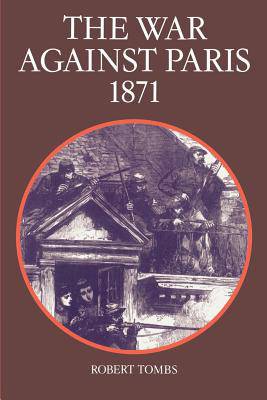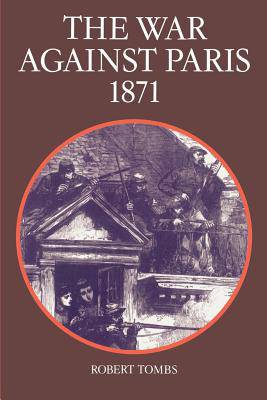
- Afhalen na 1 uur in een winkel met voorraad
- Gratis thuislevering in België vanaf € 30
- Ruim aanbod met 7 miljoen producten
- Afhalen na 1 uur in een winkel met voorraad
- Gratis thuislevering in België vanaf € 30
- Ruim aanbod met 7 miljoen producten
Zoeken
Omschrijving
The Paris Commune of 1871 is one of the great romantic failures in revolutionary history. Yet very little is known about its enemies, and especially the army, which first fraternized with the revolutionaries and then, two months later, crushed them with the utmost violence. This book, based on extensive archival research, is the first serious study of the role of the army in the civil war. It examines its composition and organization, its weaknesses and their effect on government policy, the steps taken to improve morale and discipline, the state of mind of officers and men and, finally, the conduct of the army in battle and the causes of the final bloodshed, in which about 20,000 Parisians were killed in the fighting or executed afterwards. Its purpose is to cast new light on the policy of the government and the problems of using an army in a civil war, and to tell for the first time the full tragedy of the suppression of the Comune, one of the bloodiest and least understood social conflicts in the history of modern Europe.
Specificaties
Betrokkenen
- Auteur(s):
- Uitgeverij:
Inhoud
- Aantal bladzijden:
- 272
- Taal:
- Engels
Eigenschappen
- Productcode (EAN):
- 9780521287845
- Verschijningsdatum:
- 31/12/1981
- Uitvoering:
- Paperback
- Formaat:
- Trade paperback (VS)
- Afmetingen:
- 152 mm x 229 mm
- Gewicht:
- 403 g

Alleen bij Standaard Boekhandel
+ 62 punten op je klantenkaart van Standaard Boekhandel
Beoordelingen
We publiceren alleen reviews die voldoen aan de voorwaarden voor reviews. Bekijk onze voorwaarden voor reviews.











